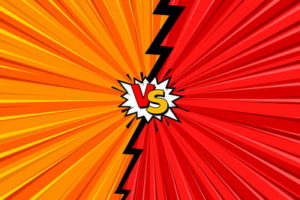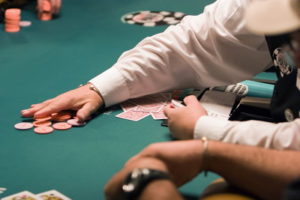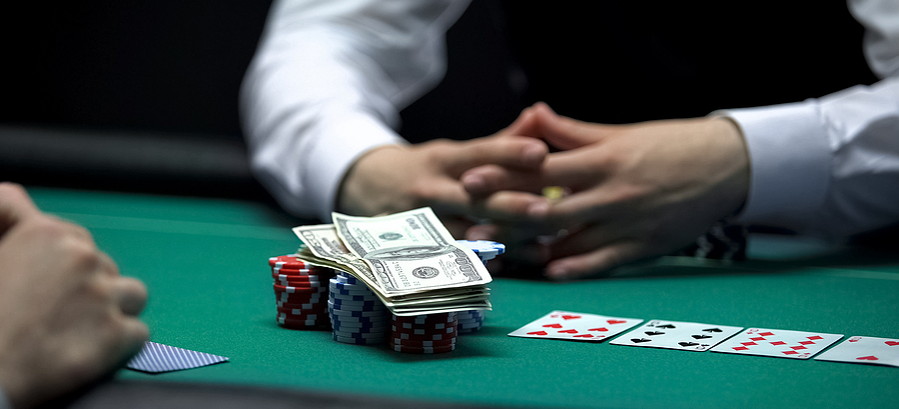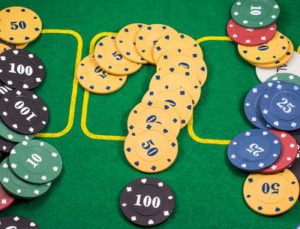 We all love Omaha but, as with any poker variant, there are drastic differences between tournament play and cash games. We will look to introduce you to some of the differences between the two which, might look minor on the face of things, but actually have a very dramatic impact on gameplay, attitude and strategy.
We all love Omaha but, as with any poker variant, there are drastic differences between tournament play and cash games. We will look to introduce you to some of the differences between the two which, might look minor on the face of things, but actually have a very dramatic impact on gameplay, attitude and strategy.
For instance, cash game poker typically refers to games in which players can purchase chips at any or all times. Sure, there is a set buy-in but, so long as you meet the minimum amount, your place at the table is assured. Obviously, this means that some players at the table will have more fire power than others. Afterall, people will buy-in with differing amounts. In contrast, in tournaments, players buy-in for the same amount, beginning with the same amount of tournament chips.
Also, cash games are played on one table while tournaments take place on multiple tables, hence the abbreviation MTT, which literally stands for multi table tournaments. In cash games, you can pick up your chips and “cash out” when you’ve had enough. Not so, in tournament poker where elimination is your ‘only’ way out with play only ending when there is one person left standing.
Also, blinds stay the same for each hand in cash games, depending on the stakes at least, where as in tourneys the blinds increase on a timed basis. Also, unless stated as a rebuy, most tourneys will freeze you out of the game should you bust but in cash games, you can buy yourself back in and continue playing. And that right there is the key distinction to the two games.
Tournament Omaha Poker
 Because, in PLO, you must use two pocket cards PLUS three community cards, it is absolutely critical that you select them accordingly in order to provide as many outs as possible. Position is another important factor in PLO. Check your aggression too, not only build your stack but use it. In short, be ruthless.
Because, in PLO, you must use two pocket cards PLUS three community cards, it is absolutely critical that you select them accordingly in order to provide as many outs as possible. Position is another important factor in PLO. Check your aggression too, not only build your stack but use it. In short, be ruthless.
In fact, during a deep PLO tourney run, you will need to accumulate chips and build your stack as early as possible. This is because, sooner rather than later, you will be required to survive some close calls that could leave you hurting. Expect early limpers to be vulnerable so make them your ‘bounty’ but, as you move into the mid-stages and beyond, be aware that calls will get harder.
Look out and be ready to seize upon opponents overvaluing pairs, both higher and lower, both of which are almost unplayable and are a very common mistake in PLO. Reading hands in PLO may be tough, but there is some good news which is that many players will inadvertently give away their hand strength.
Check raising is a bad idea in Omaha. Players will often check while holding the nuts when in actual fact they would be far better off betting. Betting a lot of hands is a far better move and provides unpredictable cover so long as you be sure to mix it up. You need to stay on your guard in an Omaha tourney as it’s more complex and one wrong move could cost you the whole game, which isn’t the same as in cash games.
Cash Game Omaha Poker

As cash games are not played as life and death, you have more time to pay attention to the basics without the panic of final elimination. And, with PLO there are some key basics that you must stick to and remember. Like over-valuing Aces and other big pairs which, might just pay off in Hold’em but will almost certainly let you down here. For example, folding over pairs in response to a raise is a standard move in PLO.
It’s not only overpairs that can hurt you, smaller flushes can also often prove costly as players nominally stay in the hand if they happen to be drawing to the nuts, so a lower flush, that could nick a win in Hold’em, will end up lifeless here. Drawing to the nuts is always the smart move by the way. If you’re not, someone else is and will end up crushing you.
Why They Are Played Differently
 There are many ways in which cash games are different to tournaments but two key elements stand out, variance and re-buying. Taking the latter first, busting in a tournament is a disaster which is simply not the case in a cash game, where, if you can afford to continue, you can.
There are many ways in which cash games are different to tournaments but two key elements stand out, variance and re-buying. Taking the latter first, busting in a tournament is a disaster which is simply not the case in a cash game, where, if you can afford to continue, you can.
This is not to encourage reckless play, simply to highlight that playing under the threat of a freezeout and knowing that you can buy back in, means that players can have entirely different mindsets.
In cash games there are times when you will be required to put all your chips on the line knowing you might not win the hand. As is the nature of the game, some of these moves will work in your favour, some won’t and, if it doesn’t, you can just re-buy-in anyway.
The re-entry factor simply means that you can, money permitting, call more often than not despite knowing that, more often than not, you will lose the hand. In tourneys, you won’t be calling anywhere near as much and if you did it would largely depend on your stack, the blind levels, how close you are to the bubble or other defining factors. In a cash game, these things simply don’t factor.
Also consider the variance, of which cash games have less. Cash games have less swing because coolers, and heaters for that matter, have less impact and when they do hit their implications are less extreme and much more manageable.
In tournaments, however, the money only comes at the end when the remainers have reached the final table. Any tournament players among you know how hard it is to make it that far.
Conclusion
In the end, the key differences between tournament Omaha and cash game Omaha are enough to impact on key elements of the game. In fairness, the same essential rules are true. Elimination in a Hold’em cash game is easily rectified but terminal in a tournament. So, in the end, the main distinction lies in the game itself.
The complexities that make Omaha poker so unique and offers so much more to consider than its relative variants. There is just so much to factor in in Omaha that, cash game or tournament, you are sure to have a great, and hopefully profitable, time.
